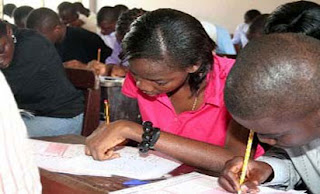Written by the Editorial Board of The Guardian newspaper
Although it took long in coming, the Federal Government’s appointment of 17 new heads of education agencies and parastatals should be a commendable development. This is especially so when the motive for this change was hinged on “high level of impunity and financial recklessness in their organisations” by the respective leadership. By this gesture, the Federal Government seemed to be symbolically expressing its resolve to place the education sector in line with its change mantra.
For a long time, too, this country has been bedeviled by unclear educational policies that have been given different shades of interpretations by stakeholders in that sector. From the primary level, where foundational education is bastardised by private pecuniary motives and public insensitivity, to the secondary level, where curricula and syllabuses run at cross-purposes and have no bearing with national needs, to the tertiary level, where many ill-prepared students pass through and are thrown into the society, the educational sector has never been in such dire need of reforms as it is at this moment.
In the same vein, that the government has made efforts to recruit 500,000 teachers, and is poised to recruit about 1.3 million in the next six years into the basic education level, is an attestation of how serious the need for securing the foundation of education is. Just as there is a dearth of qualified teachers in the schools, it is equally true that the teaching profession is not an all-comers profession. It is one profession that must tactfully combine its vocational nature with its professional status to positively transform the society.
However, it is sad that plans are just coming up one and half years into the administration of President Muhammadu Buhari. As a matter of fact, the Minister of Education, Mallam Adamu Adamu, has only recently given the newly appointed heads one month to come up with action plans. Any country that desires to transform its situation and people understands that education is always tailored towards identified societal needs. Such needs, that must be specific, measurable, realistic and time-bound, would determine the curriculum, school content, and syllabuses. It would also consider the kind of teachers it has or seeks to recruit. In other words any educational change that warrants that name must have a roadmap.
Given the hackneyed mantra of change peddled by this administration, what vision of education is being offered the people? What kind of education does this country need? To what specific national need or needs is it directed? What is the mission? What step by step procedures are being put in place to realise that vision? If the appointment of new heads is merely a change of guard, then the euphoria over change is misplaced. This perception may become an unfortunate development, if the appointment, as certain critics claim, is a re-inforcement of the nation’s lack of foresight.
In the opinions of many critics, the fact that the minister and heads of important regulatory authorities in the educational sector are from one section of the country tends to create a situation of no confidence. Informed comments from many patriots have often relayed the perceived insularity and limited horizon of the current leaders, too narrow for a pan-Nigerian leadership. Although accusations of ethnic favouritism in appointments may be exaggerated, this government should endeavour to manage this public perception assiduously.
With a reduction in the budgetary allocation from 11 per cent last year to eight per cent in the current appropriation, it is indeed curious to know how Nigeria can muster the political will to attain global average in the educational sector. It would be recalled that recently the Federal Government enthused Nigerians by proposing to adopt the Iranian model of development to fast-track national growth. Iran has a literacy level of well over 93 per cent, and it is an influential Middle Eastern power. It has a rich ancient civilisation and proud cultural heritage to back her present nationalistic spirit and industrial development goals.
Nigeria’s literacy rate, on the other hand, is about 36 per cent and unevenly distributed. Whilst many parts of the country are educationally disadvantaged due to cultural beliefs and traditional practices, others have embraced western scientific education as a way of life to their benefit. Besides, the culture and belief systems that relegate women and the girl-child are most potently demonstrated in the latter’s inaccessibility to education. Rather than fashion out ways of genuinely increasing this value exponentially, policy makers and government actors are playing politics with statistics.
If Nigeria seeks to adopt Iran’s model of development (whatever it may be) as a pilot for its educational sector, then Nigerians require a lifetime of commitment and a superlative sense of nationalism, social responsibility and collective action to achieve that goal. In today’s highly competitive world, Nigeria must identify its strengths and opportunities and create educational ideas and policies that would put its people in global advantage. Nigeria must also reconsider the budgetary allocation for education if it is to be taken seriously. A single digit per cent budgetary allocation for education is the clearest expression of a non-starter.
Above all, there is need for wholesome empowerment of the society by promoting education of the girl-child. In this regard, the wise saying, ‘Educate the woman and you educate a nation’ becomes very instructive.
(adsbygoogle = window.adsbygoogle || []).push({});


